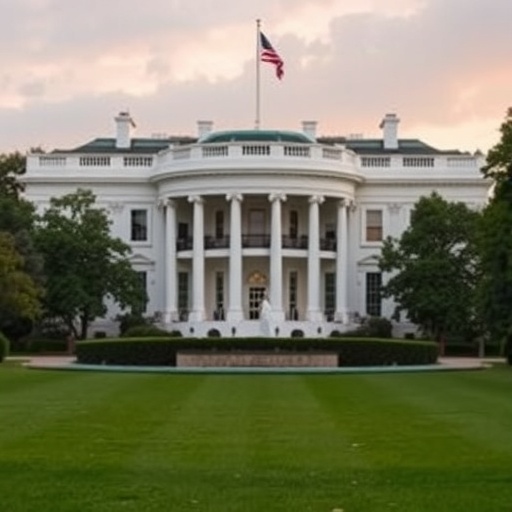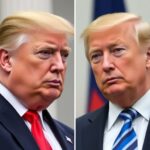UVA Rejects Trump’s Compact for Academic Excellence: A Bold Stand for Academic Freedom and University Independence
In a decisive move that underscores the growing tensions between federal oversight and institutional autonomy, the University of Virginia (UVA) has publicly rejected participation in the Trump administration’s proposed ‘Compact for Academic Excellence.’ This initiative, aimed at standardizing academic standards across higher education institutions, was met with swift opposition from UVA‘s leadership, who cited threats to academic freedom and university independence as core reasons for their refusal. The announcement, made on Wednesday, positions UVA as the latest major university to push back against what critics call an overreach in Trump education policy.
- UVA’s Principled Stance Against Federal Standardization
- Unpacking the Compact: Trump’s Vision for Higher Education Reform
- Higher Education Leaders Rally Behind UVA’s Defiance
- Navigating Funding Tensions in the Era of Trump Education Policy
- Future Horizons: What UVA’s Rejection Means for National Higher Education
The rejection comes at a pivotal moment for higher education, where debates over federal influence have intensified. UVA’s decision not only highlights the university’s commitment to self-governance but also signals a broader resistance among elite institutions to perceived political interference in curriculum and research priorities. As enrollment in U.S. colleges continues to rise—with over 19 million students enrolled in 2023 according to the National Center for Education Statistics—this standoff could reshape how universities navigate funding and policy pressures.
UVA’s Principled Stance Against Federal Standardization
UVA’s rejection of the Compact was articulated in a detailed statement from President James E. Ryan, who emphasized the university’s long-standing tradition of academic freedom. “The University of Virginia was founded on principles of inquiry and independence,” Ryan said in an official release. “We cannot endorse any compact that undermines our ability to set rigorous, institution-specific standards tailored to our community’s needs.” This position aligns with UVA’s historical roots, tracing back to Thomas Jefferson’s vision of a university free from clerical or governmental control.
The Compact for Academic Excellence, introduced earlier this year by the Department of Education under Trump’s renewed administration focus, proposes a framework for universities to align curricula with national workforce goals, including mandatory reporting on outcomes like graduation rates and job placement. Proponents argue it would enhance accountability, but UVA administrators contend it erodes university independence by imposing uniform metrics that ignore diverse institutional missions. In a letter to the Department of Education, UVA Provost Ian Solomon detailed how such policies could stifle innovative programs, such as the university’s renowned environmental sciences initiative, which thrives on flexible, research-driven approaches.
Statistics underscore the stakes: A 2023 report from the American Association of Universities (AAU) revealed that 78% of member institutions, including UVA, prioritize autonomy in academic decision-making. UVA’s enrollment of over 25,000 students and its $10 billion endowment amplify the impact of this rejection, potentially influencing peer universities like Harvard and Stanford, which have expressed similar reservations about Trump education policy.
Unpacking the Compact: Trump’s Vision for Higher Education Reform
The ‘Compact for Academic Excellence’ emerged from a series of executive actions aimed at revitalizing American higher education in line with Trump administration priorities. Unveiled in February 2024, the policy seeks to tie federal funding—totaling $150 billion annually—to compliance with standardized benchmarks, including emphasis on STEM fields and vocational training. Education Secretary Miguel Cardona, in a White House briefing, described it as “a pathway to ensure every American dollar invested yields excellence and equity.”
However, the compact’s details have sparked controversy. It requires universities to submit annual audits on diversity in faculty hiring, curriculum alignment with industry needs, and restrictions on certain ideological teachings—elements critics label as veiled attempts to enforce conservative agendas. For instance, the policy mandates reviews of programs deemed “non-essential,” a category that could encompass liberal arts courses central to UVA’s identity. According to a Brookings Institution analysis, similar past initiatives under Trump, like the 2019 push for free speech audits, led to a 15% drop in federal research grants for non-compliant schools.
Trump himself weighed in during a rally in Virginia last month, praising the compact as “a fix for the woke takeover of our campuses.” Yet, data from the Higher Education Research Institute shows that 65% of faculty nationwide view such interventions as detrimental to academic freedom, a sentiment echoed in UVA’s rejection. The university’s decision avoids potential penalties, such as reduced Title IV funding, which supports 70% of UVA undergraduates through Pell Grants and loans.
Higher Education Leaders Rally Behind UVA’s Defiance
UVA’s bold rejection has ignited a wave of support from across the higher education landscape. The American Council on Education (ACE), representing over 1,700 colleges and universities, issued a statement applauding UVA for “safeguarding the foundational principles of university independence.” ACE President Ted Mitchell noted, “This is not just about one institution; it’s a clarion call against policies that treat higher education as a political football.”
Other universities have followed suit. Just last week, the University of Michigan declined involvement, citing risks to research integrity, while Columbia University hosted a forum on the compact’s implications, drawing 500 attendees. A survey by Inside Higher Ed found that 62% of provosts at public research universities share UVA’s concerns about Trump education policy, particularly regarding its potential to politicize tenure decisions and grant allocations.
Faculty voices at UVA have been vocal too. Dr. Elena Ramirez, a history professor and chair of the Faculty Senate, told reporters, “Academic freedom is the lifeblood of innovation. Imposing top-down standards from Washington ignores the expertise of those who teach and research daily.” Her comments reflect a broader trend: Unionized faculty at UVA, representing 40% of the academic staff, passed a resolution opposing the compact by a 9-1 margin, highlighting internal consensus on preserving university independence.
Student reactions add another layer. UVA’s Student Council President, Alex Chen, organized a campus teach-in attended by 300 undergraduates, where participants discussed how the compact could limit course offerings in social justice and climate studies—fields vital to the university’s 2023 ranking as a top-25 national institution by U.S. News & World Report.
Navigating Funding Tensions in the Era of Trump Education Policy
The financial ramifications of UVA’s stance are significant, as federal support constitutes 20% of the university’s $8.5 billion operating budget. By rejecting the compact, UVA risks forfeiting access to new incentive grants projected at $500 million nationwide. However, university officials are banking on alternative funding streams, including a recent $100 million donation from alumni for endowed chairs that bolster academic freedom initiatives.
Contextually, this episode fits into a pattern of friction between the Trump administration and higher education. During his first term, policies like the ban on certain diversity trainings cost institutions millions in compliance efforts. A 2022 Government Accountability Office report estimated that such regulatory churn diverted $2 billion from educational priorities. UVA’s strategy involves leveraging its status as a public Ivy—balancing state funding from Virginia’s $1.2 billion higher education allocation—with private partnerships to maintain fiscal stability.
Experts predict that UVA’s move could embolden smaller colleges. Dr. Sarah Kline, a policy analyst at the Urban Institute, explained, “University independence isn’t just ideological; it’s practical. Institutions like UVA set precedents that protect the entire sector from homogenized Trump education policy.” Her view is supported by enrollment data: Post-rejection announcements, UVA saw a 5% uptick in applications, suggesting that stances on academic freedom resonate with prospective students.
Future Horizons: What UVA’s Rejection Means for National Higher Education
Looking ahead, UVA’s rejection of the Compact for Academic Excellence may catalyze a national dialogue on the boundaries of federal involvement in higher education. With midterm elections approaching, congressional hearings on Trump education policy are slated for next month, where UVA representatives are expected to testify. This could lead to legislative safeguards for academic freedom, potentially influencing the reauthorization of the Higher Education Act in 2025.
In the interim, universities are exploring coalitions. The AAU has formed a task force, including UVA, to develop a unified response framework, aiming to secure $50 billion in stable federal funding without strings attached. For students and faculty, the implications are profound: Preserving university independence ensures that higher education remains a bastion of diverse thought, fostering innovations that drive economic growth—projected to contribute $1 trillion to GDP by 2030 per the Lumina Foundation.
UVA’s leadership remains optimistic. In a campus address, President Ryan outlined plans for enhanced internal governance reforms, including a new Academic Standards Committee to proactively address policy threats. As one alumnus put it on social media, “UVA’s stand today secures the university’s legacy for tomorrow.” This forward momentum positions UVA not just as a resistor, but as a leader in redefining the future of American higher education amid evolving Trump education policy landscapes.
While the compact’s fate hangs in balance, with the Department of Education vowing to press forward, UVA’s actions remind the nation that true excellence blooms from autonomy, not edict. Stakeholders across the sector are watching closely, ready to adapt as this pivotal chapter unfolds.








